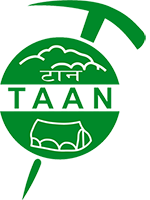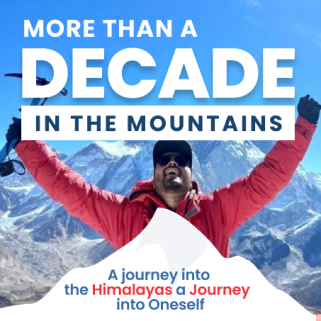
Responsible Trekking in Nepal: A Complete Guide

Responsible Trekking in Nepal: A Complete Guide
Kanti Khadka
2589
15, 11 2019
Looking at the environmental condition right now, it should be our first responsibility as travelers/trekkers to ensure our joy and experience are not coming at the cost of environmental degradation of any kind. That being the first priority, responsible trekking suggests trekkers focus on preventing cultural damage and try not to bring in bad influences.
The fact that the news of the Himalayas and other tourist attractions getting polluted increases by the day should get us out of our comfort to prevent it and, if possible, even reverse it with little self-awareness and rules and regulations that are made sure to be followed, it should not take long to see desired changes in the near future.
So, How do we do that?
One can find numerous articles all over the internet that talk about ethical trekking in Nepal, providing all the information needed, like choosing the ideal tour operator that prioritizes your goals of being a responsible trekker, uplifting the lifestyle of the locals residing at the places you visit, how negative influences can be avoided form prevailing, etc. Here is our take and some suggestions for you as to how it can be done easily and sustainably.
Is Responsible Trekking in Nepal Important?
People worldwide who love traveling are almost sure to have Nepal on their travel list. Although it is good for Nepal’s economy and helps in its development, it shouldn’t be news that an increasing number of people also means an increase in possible damages and bad influences they could bring with them.
Before, when only professionals with experience and knowledge on how not to cause any sort of harm to the environment and other aspects were the ones traveling, their impacts were not concerning but as destinations like Everest Base Camp, Annapurna Base camp, etc. are getting more popular, people with even little to no experience and knowledge of responsible trekking are raising issues like deterioration of natural vegetations, mistreating guides and porters, crowding trails, bringing in bad cultural influences and so on. To avoid all these problems and ensure everything is being taken care of while we enjoy traveling and gathering thrilling experiences, as they say, “ leave nothing but footprints,” everybody should be aware of responsible trekking.
Is it still morally acceptable to trek in Nepal by any means?
Well, it sure is!
Tourism is Nepal’s largest industry. Hence, it impacts the nation's economic condition greatly, so it shouldn't be considered to completely stop trekking and travel to the Himalayas and other popular destinations. It is not good to just look at the negative effects as it also has its own good effects like improving the living standards of the locals, spreading awareness, giving locals exposure to the different lifestyles around the globe, etc.
Therefore, the solution is not to avoid trekking to these destinations at all but to encourage safe, responsible, and ethical trekking that benefits all the aspects involved, namely: trekkers, the environment, trails, and the locals.
What are the things you ought to consider before the trek?
Trekking with a company or tour operator that encourages responsible and ethical trekking
Increasing numbers of travel agencies all around have resulted in agencies that don’t care about the harmful impacts and don’t take any actions to prevent the exploitation of the environment. You should try and find local travel agencies that have a sustainable and responsible mindset and live by the values that include preventing the negative impacts of trekking.
Here are a few questions to add to your list for making the right decision:
-
Does the agency make sure locals are being benefitted from the visit?
-
Does it support and stand for the empowerment of children, women, and other dominated groups?
-
Do they participate in activities that minimize pollution?
-
Do they avoid animal cruelty like elephants riding and torturing animals in the name of entertainment?
-
Are they actively working on protecting and promoting the local culture and traditions?
Make sure you travel with a company with experience and a good reputation for promoting responsible trekking like Swotah travel and adventures.
Try Trekking in the Off-Season
During the autumn season, which falls from September to November, and the spring season (March to May), there is a huge flow of tourists to Nepal as it is the most favorable time for trekking because of the clear skies and weather favorable for outdoor activities.
Not to forget, being off-season doesn’t mean they have lesser good experience to offer you; it might simply just mean they aren’t widely practiced. Traveling during the off-season has its own pros, like less crowded trails, easy-to-find hotel rooms, you might get discounts in teahouses and hotels, you might be helping porters and guides to meet their day-to-day needs when they don’t have many tourists to assist, easy to remain secure, cheaper services, etc.
Opt for the off-beaten trails of Nepal.
Famous trekking trails of Nepal are in their worst condition due to unmanaged waste products, the strain on available resources to meet the needs of trekkers, the destruction of natural vegetation, and so on.
Choosing off-beaten trails that are lesser known, Mohare danda, Upper Dolpo, and Kanchanjunga, like Mardi Himal, not only gives these popular trail breaks and time to repair and get better but also provides exposure to unexplored trails. With that being said, all the trails will equally profit, which leads to a better quality of life for the locals if the tourist flow gets balanced in all famous and off-beaten trails.
Carry a reusable water bottle.
Everybody knows plastics are not recyclable, so be wise and carry a water bottle that can be refilled and used instead of buying water in a plastic bottle that pollutes the environment. In case you are worried about bad water harming your health, then know that ACAP provides several UV- treated water refilling stations in the Annapurna region and Annapurna circuit. Besides that, you will find plenty of resources that locals use for daily consumption to refill the bottles, proving it to be safe for you.
Do not use plastic
Although there are no restrictions on using plastic, we are familiar with all the problems caused by plastic all over the world. So, it's good to reduce plastic use, to begin with, and even when we do use plastics, never forget to dispose them properly the right way; it won’t harm carrying the plastics you see here and there and clean the trail even if it is not yours as it only makes our environment cleaner.
Strictly use toilet
Never excrete in open places; make sure you are using a toilet where your excretion is being managed properly to ensure you are not polluting and harming the biodiversity of the place you visit.
Use eco-friendly toiletries
Using eco-friendly toiletries includes a compostable toothbrush, plastic-free toothpaste, shampoo bars, toxin-free wipes, natural washcloths, natural deodorant, etc. By doing this, you are contributing to preserving the mountains and nature.
Respect and treat your porters fairly
Never forget porters are human beings, too, and they carry your load to meet their needs. Be kind to them, and always ensure they are not overworked, underpaid, and feel appreciated. There are numerous stories of porters not being fed, not getting to sleep nicely, being made to carry way heavier loads than they are supposed to, not getting medical attention, etc. Never feel okay being part of stories like this that can harm your dignity as well as the porter’s well-being. Also, avoid hiring underage porters. One way to know your porters are being treated fairly is by checking if the trekking organization follows the International Porter’s Association's rules and regulations.
If you take any sort of animal ride, make sure they are being well treated
Certain trails in Nepal are difficult to complete on your feet entirely, so if you need to take animals, then be human enough not to overload the animal you are riding and ensure they are not being treated cruelly by the operators.
Respect local culture and tradition
Nepal has vivid cultures and traditions of a wide range of diversity of people’s ethnicity. While you travel around, you should never disrespect their cultural practices or act like a threat to them. Make sure to ask your guide tons of questions to be familiar with what you need to do to not go against the cultural, traditional, and religious practices and beliefs while being respectful of their boundaries, like taking off your shoes before entering the temple, dressing modestly, speaking politely, etc.
Learn some local languages and traditional name
Expanding your language knowledge is never a bad thing plus, when you visit places, if you learn the basics of their language, like saying hello, “Namaste,” thank you, “Dhanyabad,” etc., it shows your gratitude towards them and makes them feel appreciated.
Pay fair prices
When you bargain with local vendors and small businesses, remember that most of them do it for basic needs and not for luxury, which is why lower prices in limits and never underpay anyone. This helps to better the quality of life of the locals, one of the prime focuses of responsible trekking.
Always ask for permission before taking photographs
Nepal is a beautiful, diverse country with lots of monumental, historical, religious, and architectural attractions which you would want to capture, but don’t forget some places are restricted from being photographed; respect those restrictions, and don’t try to take pictures of things you are not supposed to. Also, be careful and take consent while capturing people and sadhu ( holy man). Responsible travel helps you to understand the concept of these rules and restrictions better.
Even if responsible trekking might look like a lot of work, remember it makes you a civilized human being and preserves mother nature. Feel free to add something we might have missed and give your opinion on responsible and ethical trekking.
NEWSLETTER SIGNUP
Sign up to receive our trip ideas and travel offers!
Get updates and Exclusive Offers up to 20% Discount








